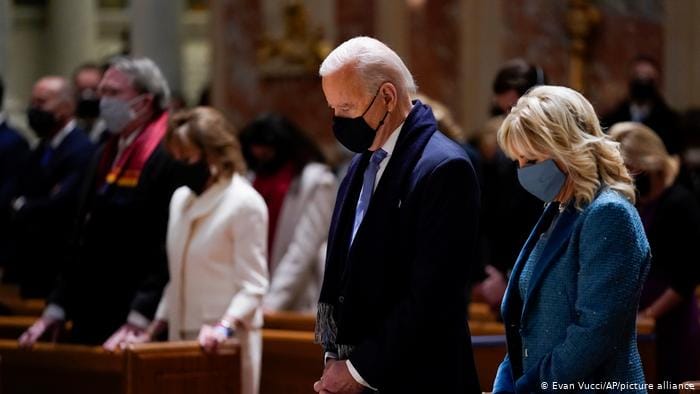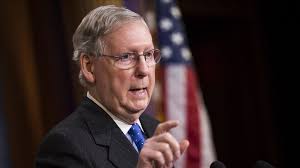
Joe Biden and the struggle for American Catholicism
The day of Biden’s inauguration brought a dramatic confrontation between the two forces.
Just hours after Biden hadattendedMass at the Cathedral of St. Matthew the Apostle in Washington, Archbishop José H. Gomez of Los Angeles, the president of the U.S. Conference of Catholic Bishops, issued a statementthat began by praising Biden’s “piety” and “his moving witness to how his faith has brought him solace in times of darkness and tragedy,” but then moved to an unprecedented first-day rebuke.
“I must point out,” Gomez wrote, “that our new President has pledged to pursue certain policies that would advance moral evils and threaten human life and dignity, most seriously in the areas of abortion, contraception, marriage, and gender. Of deep concern is the liberty of the Church and the freedom of believers to live according to their consciences.”
The statement infuriated the Francis wing of the church leadership, which had not been consulted.Cardinal Blase Cupichof Chicago took toTwitterthat afternoon to deplore the statement as “ill-considered” and the product of “internal institutional failures” since it “came as a surprise to many bishops, who received it just hours before it was released.” Other Francis allies, including Cardinal Joseph Tobin of Newark and Bishop Robert McElroy of San Diego, issuedstatements distancing themselves from Gomez’s view.
And the Vatican itself was plainly unhappy. The Jesuit magazine America quoted a Vatican official calling the statement “most unfortunate,” and Francis set an upbeat tone. Hesaid he was praying that Biden would be “guided by a concern for building a society marked by authentic justice and freedom” with a particular concern for “the poor, the vulnerable and those who have no voice.”
“It’s really striking” said David Gibson, director of the Center on Religion and Culture at Fordham University, “that you have the President of the United States, an old-time Catholic from Scranton, more in line with the pope than the American bishops.”
Indeed, in his new book, “Joe Biden and Catholicism in the United States,” Massimo Faggioli, a Villanova University theologian, linked Biden and Francis as advocates of a “dialogue-seeking Catholicism” built on “an optimistic evaluation of creation.”
The conflict — called a “functional schism”by the Catholic writer Michael Sean Winters — encompasses more than a half-century of Catholic history. Biden embodies the Catholicism of the Second Vatican Councilof the 1960s, a period when the American Catholic imagination was shaped by the “two Johns,” in the writer Garry Wills’s evocative phrase,Pope John XXIII and John F. Kennedy.
Although opposition to abortion has been central to the church’s political engagement since the growth of the abortion rights movement and the Supreme Court’s Roe v. Wade decision in1973, its public statements on social justice, economics, and war and peace had strong progressive leanings through most of the 1980s.
But a more conservative leadership appointed by Popes John Paul II and Benedict XVI coincided with a Reagan-era push by intellectuals and activists on the church’s right to ally with the White evangelical political movement in opposition to abortion and advances in LGBTQ rights. The effect was to play down the church’s social justice teachings and to create what Cathleen Kaveny, a Boston College theologian, called “an American fusion of Catholicism with certain conservative and nationalist forms of evangelical Protestantism.”
Now the tables have turned again with Francis. He sharply shifted the church’s public witness toward a crusade against poverty, social injustice and climate change. Francis regularly speaks against abortion, but he has repeatedly criticized those who cast abortion as, in the phrase Gomez invoked, the church’s “preeminent priority.” Francis, like the more liberal bishops of the 1970s and 1980s, regularly links abortion to his broader agenda.
And this is why Gomez’s admonishment was a blunder. Not only did he galvanize the pro-Francis forces in the church willing to work with Biden on many issues. He also sent a message to the Biden administration that its formal dealings with the Catholic hierarchy should go not simply through the bishops conference, the traditional route, but also through the American cardinals, three of whom were named by Francis.
Biden did not run for president to transform the politics of the Catholic Church. But the devout kid from Scranton, Pa., is already having that effect.
